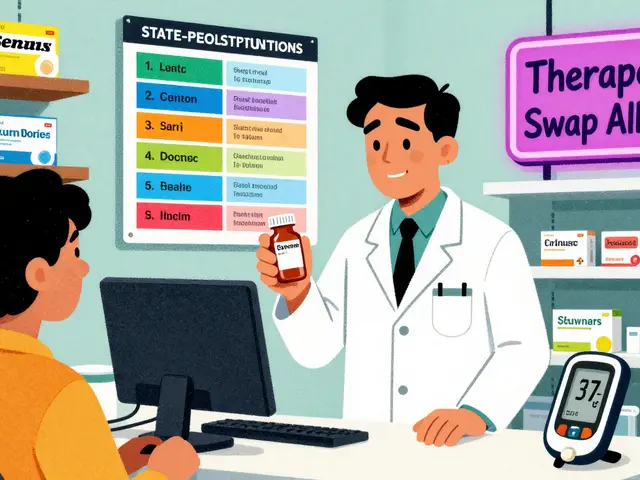Pregnancy: What to take, what to skip, and quick safety tips
Pregnancy changes how medicines and supplements affect you. A drug that’s fine before pregnancy might be risky once you’re pregnant. This page gives straight answers you can use: which meds to avoid, which supplements matter, and how to get safe care without guessing.
Medications: clear dos and don’ts
First rule: always check with your OB or midwife before starting or stopping any medicine. Some drugs are known to harm the fetus and must be avoided. For example, isotretinoin (Accutane) causes serious birth defects and requires strict pregnancy prevention programs. Blood-pressure drugs in the ACE inhibitor/ARB family (like irbesartan) are usually stopped in pregnancy because they can damage the baby’s kidneys.
Other common notes: avoid warfarin unless a specialist says otherwise. High-dose NSAIDs (ibuprofen, naproxen) are best avoided after 20 weeks because they can affect fetal circulation. Antibiotics such as azithromycin are sometimes okay, but your provider will pick an antibiotic proven safe for your situation.
If you take antidepressants, don’t stop them suddenly. Talk to your psychiatrist or OB about risks and benefits — untreated severe depression can also harm you and the baby. Your care team can pick a safer option and monitor you closely.
Supplements, vaccines, and pharmacy safety
Start folic acid as early as possible. Aim for 400–800 mcg daily before conception and through the first trimester to cut the risk of neural-tube defects. A prenatal vitamin with iron and vitamin D is helpful for many people, but don't stack extra doses without advice.
Flu shots and the Tdap vaccine are recommended in pregnancy — they protect you and the newborn. Live vaccines (like MMR) are usually delayed until after delivery.
If you buy medicine online, use a licensed pharmacy that asks for a prescription when needed. Avoid sites that sell prescription drugs without prescriptions. Quality and authenticity matter—counterfeit meds can be dangerous in pregnancy.
Look at the product label and the Pregnancy and Lactation Labeling Rule (PLLR) info when available. Your pharmacist can explain phrasing and risks in plain language.
Final practical tips: keep a current med list with doses and who prescribed them; bring it to every prenatal visit. Ask specifically about over-the-counter drugs, herbal remedies, and supplements—many are not harmless in pregnancy.
Know when to call your provider: heavy bleeding, severe abdominal pain, sudden swelling, severe headaches, vision changes, or a big drop in fetal movement. If something feels wrong, call — it’s better to check than wait.
Pregnancy is a time for close, simple rules: check with your care team, use trusted pharmacies, take folic acid, and avoid known teratogens. Small, smart steps keep you and your baby safer.

- Aug 1, 2023
- Posted by Cillian Osterfield
How to Manage Lung Inflammation During Pregnancy
Hey folks! So, dealing with lung inflammation during pregnancy may sound like juggling flaming tacos, but it's not that terrifying, promise! Breathe easy (pun intended), because our body is a magical thing, capable of adapting to changes and challenges! First, we need to understand the cause, could be asthma, an infection, or allergies, then we tailor a plan. It's a mix of a healthy diet, regular exercise, and prescribed medications if needed. And remember, folks, always keep your doctor in the loop - they're like your personal Google for health stuff but with a medical degree!
Categories
- Health and Wellness (72)
- Medications (71)
- Health and Medicine (28)
- Pharmacy Services (12)
- Mental Health (9)
- Health and Career (2)
- Medical Research (2)
- Business and Finance (2)
- Health Information (2)
Latest Posts
©2026 heydoctor.su. All rights reserved





